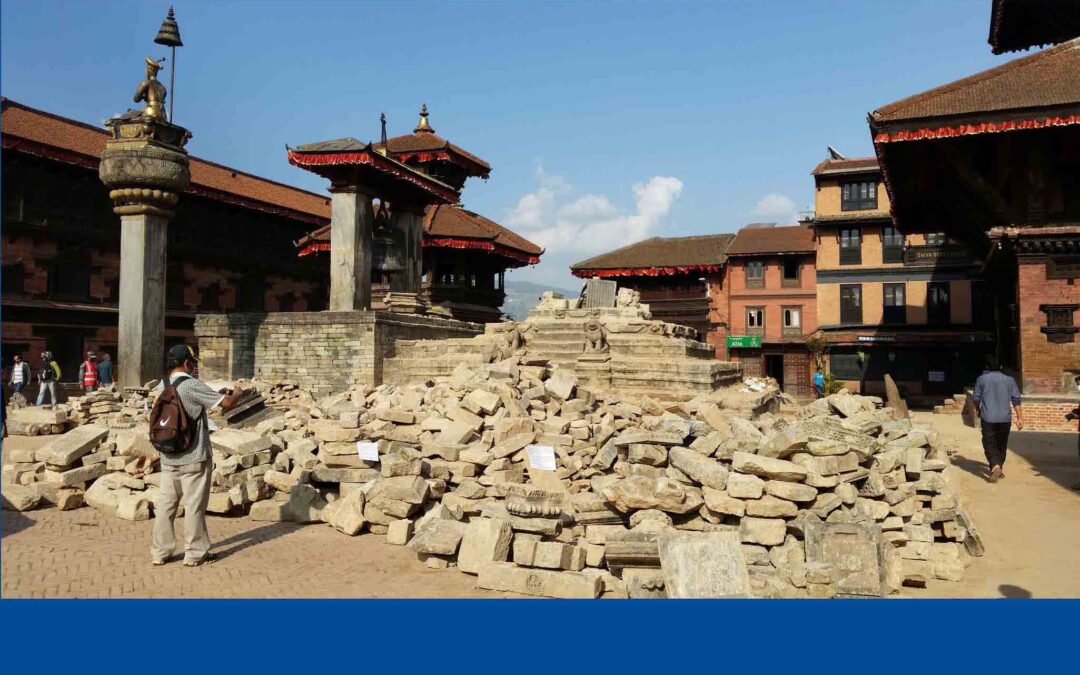
Mar 29, 2016
As the Government and the National Reconstruction Authority (NRA) finally begin the reconstruction phase of their response to the 2015 earthquake, they must ensure that the post-earthquake recovery moves forward in full accordance with the country’s human rights obligations.
Nepali authorities must ensure that post-earthquake assistance is based on needs alone and without discrimination on any status grounds, including descent (caste), gender, ethnicity or political affiliation, say the ICJ and and the Nepal Bar Association (NBA).
A preliminary report released today presents the results of a fact-finding study conducted in 2015 by the ICJ, in collaboration with the NBA, and focuses on three disaster-affected districts of Gorkha, Dolakha and Okhaldungha with the aim of assessing the humanitarian response in the earthquake’s immediate aftermath on the basis of international human rights law and standards.
In particular, the report notes that such assistance must be directed at protecting key economic and social rights, such as the rights to food, water, adequate housing, health, education and adequate standard of living.
“The ICJ and the NBA found that the political delays in operationalizing the NRA aggravated existing problems with marginalized groups and hampered the provision of necessary aid,” said Nikhil Narayan, the ICJ’s Senior Legal Advisor for South Asia and Head of Office in Nepal.
“Nepali authorities, particularly the newly launched NRA, must re-affirm their commitment to protecting the rights of those affected by the earthquake who have been suffering for nearly one year now,” he added.
The report aims to assist policy makers, particularly the recently operational NRA, and humanitarian actors by identifying the most immediate human rights concerns and providing recommendations to ensure the protection of the human rights of affected populations.
Among its main findings, the report raises concerns that:
- The Nepal Government’s undue delay in formulating a comprehensive long term policy plan for resettlement, livelihood and other assistance for those displaced has severely infringed victims’ right to adequate housing;
- The undue delay for political reasons in the establishment of a central coordinating body such as the NRA, and the failure to provide adequate guidance to local authorities in the meantime, exacerbated the other infringements of rights by stalling the relief and reconstruction process;
- The loss of documentation and the burdensome process to reacquire necessary documentation, including EVIC cards, other personal identity records and land and property ownership records, greatly impacted victims’ access to humanitarian assistance to fulfill at least the minimum essential levels of their economic and social rights and the right to recognition before the law;
- Many of the most vulnerable victims were not provided adequate information by authorities on the assistance to which they were entitled, or the process by which they could access these entitlements;
- The lack of a participatory or transparent consultative process in the design and implementation of relief programs, and a lack of awareness of available complaints mechanisms, denied many victims access to needs-appropriate relief and to redress for their grievances;
- While further in-depth field research is necessary, anecdotal information suggested that discrimination based on political affiliation, caste and gender persisted in some degree in the humanitarian relief process.
Among its key recommendations, the report observes that:
- The Government of Nepal should ensure that the NRA is provided adequate resources to fulfill its mandate promptly, independently, impartially and with full consideration for Nepal’s national and international human rights obligations;
- Nepali authorities (both the Government and the NRA) should ensure that the resettlement and reconstruction process is carried out transparently and uniformly based on need alone, in a participatory and consultative manner, and in conformity with principles of equal protection and non-discrimination;
- Nepali authorities should take special measures where necessary to ensure that women and marginalized and disadvantaged groups have equal access to assistance, including easing the procedural obstacles to obtain assistance due to lost documentation;
- Nepali authorities should ensure that an independent and impartial mechanism is available to promptly, effectively and transparently investigate complaints of discrimination, abuse of authority or corruption in both the prior phase of relief as well as the next phase of reconstruction, and that those persons found responsible are held accountable.
The NRA formally launched its operations on 16 January 2016, and is now preparing to distribute the first installment of housing reconstruction grants for displaced persons in Dolakha in coming weeks.
“Nepali authorities had a monumental challenge to respond urgently to the devastating human and physical toll caused by the April 2015 earthquake, even as they too were suffering the same trauma as the rest of the population,” said Sunil Pokharel, the NBA’s Secretary General.
“At the same time, safeguarding the human rights of victims is especially critical in times of disaster, and the State has a duty to ensure that human rights are fully integrated in post-disaster humanitarian assistance from the outset and at all phases,” he added.
Nepal-Earthquake Disaster response-Publications-Reports-2016-ENG (full report in PDF)
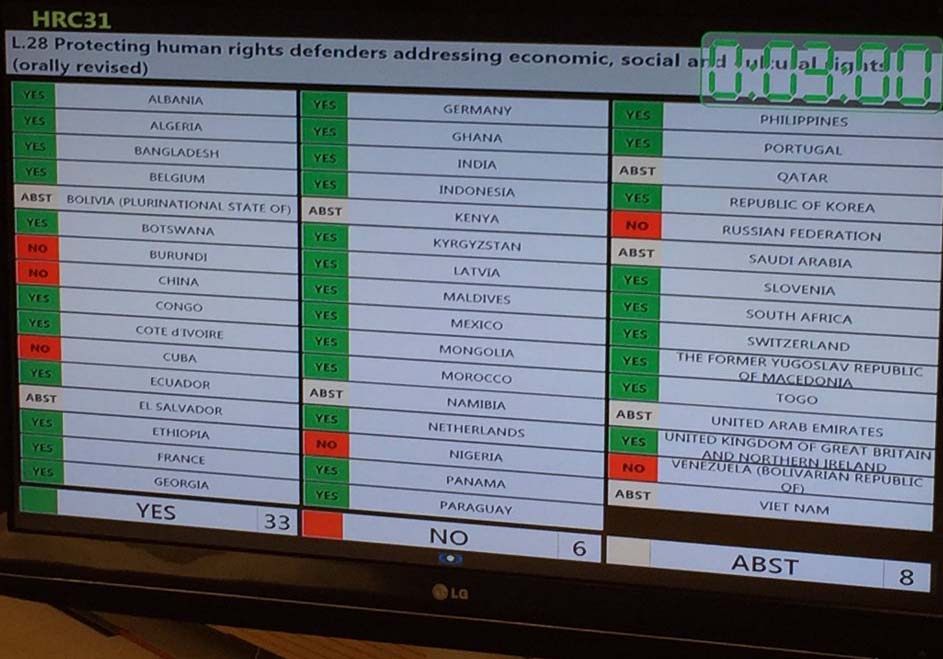
Mar 24, 2016 | News
The ICJ welcomes today’s adoption by the UN Human Rights Council of a resolution on human rights defenders addressing economic, social and cultural rights.Negotiation of the resolution was led by Norway, who presented the draft to the Council with co-sponsorship with a large number of states from around the world.
A series of hostile amendments tabled by the Russian Federation, China, Cuba, Egypt and Pakistan, which would have weakened the resolution, were defeated, and the resolution was ultimately adopted by a large majority.
The ICJ had earlier joined advocacy efforts to support the resolution text as presented, and welcomes the strong message the resolution as adopted sends affirming the importance of defenders’ work on economic, social and cultural rights, as well as the need for states to respect, protect and fulfil the human rights of such defenders, including through a range of legislative, policy, and practical measures.
The draft resolution is available in an unofficial version here: 2016 draft resolution HRDs as orally revised.
The voting on the resolution is available here: Result of the vote HRDs
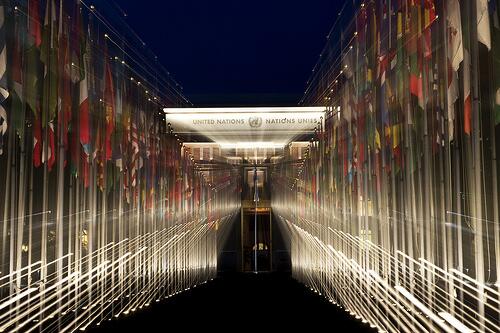
Mar 23, 2016 | Advocacy, Non-legal submissions
Today, the ICJ made a submission to the Human Rights Council’s Working Group on the Universal Periodic Review in advance of the Human Rights Council’s review of Uganda in October/November 2016.
In its submission, the ICJ expressed concern about the detrimental impact of the adoption and enforcement of the Anti-Homosexuality Act, 2014; the effect of pre-existing and extant criminalization of consensual same-sex sexual conduct; and the introduction of the Prohibition of Promotion of Unnatural Sexual Practices Bill, on the respect for and the protection and realization of human rights in Uganda.
A copy of the submission can be found here:
Uganda-ICJ CESCR submission-Advocacy-non legal submission-2015-ENG (full text in PDF)
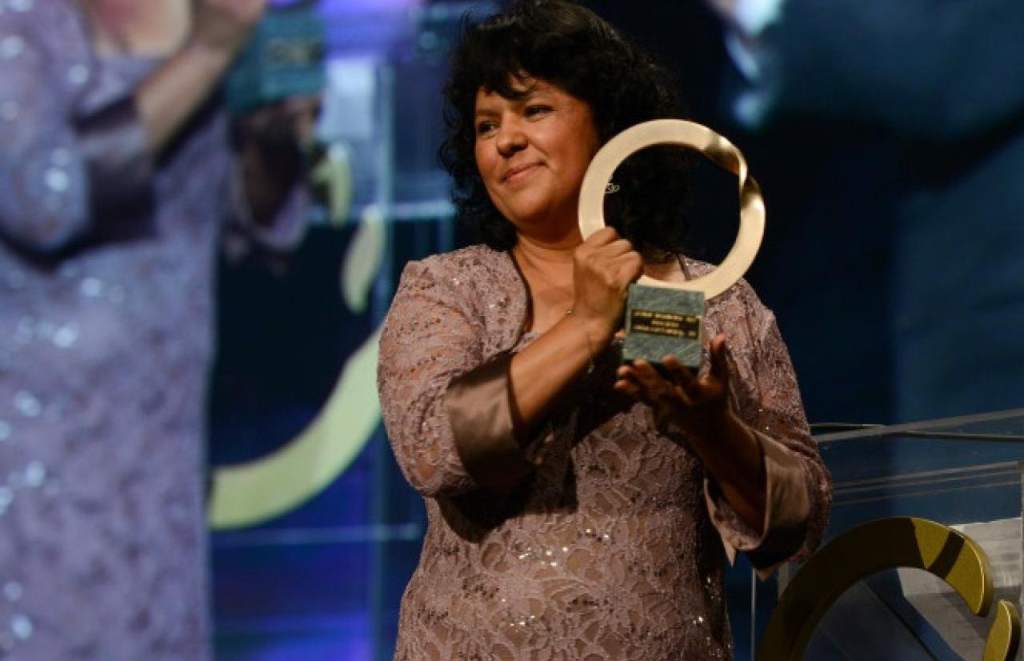
Mar 3, 2016 | Comunicados de prensa, Noticias
La CIJ condena asesinato la defensora de derechos humanos y Coordinadora General del Consejo Indígena de Organizaciones Populares de Honduras (COPINH).
En la madrugada, fue asesinada en su residencia Berta Cáceres por un grupo de sicarios.
La CIJ condena enérgicamente este asesinato, que no solo afecta a su familia, sino también al movimiento de Derechos Humanos en dicho país y al Pueblo Lenca de Honduras.
Además, constituye un ataque contra el movimiento de derechos humanos de toda la región Centroamericana.
Berta Cáceres llevó a cabo una lucha tenaz a favor de la defensa de los recursos naturales del Pueblo Lenca de Honduras.
En reiteradas ocasiones recibió amenazas de muerte, además de sufrir persecución política y órdenes de detención infundadas.
Su lucha, junto con la del COPINH y el pueblo hondureño, fue reconocida con varios premios internacionales.
La CIJ exige de las autoridades hondureñas una pronta investigación, para aclarar los hechos, determinar quienes fueron los autores materiales e intelectuales y llevarlos ante la justicia.
Ramón Cadena, Director de la CIJ para Centroamérica expresó: “Honduras ha perdido a una valiente y comprometida defensora de derechos humanos; es imprescindible que este crimen no quede en la impunidad. Los sicarios que cometieron el crimen y los autores intelectuales deben ser castigados. Esperamos un mensaje claro por parte del Gobierno y que de inicio de inmediato a las acciones correspondientes”.
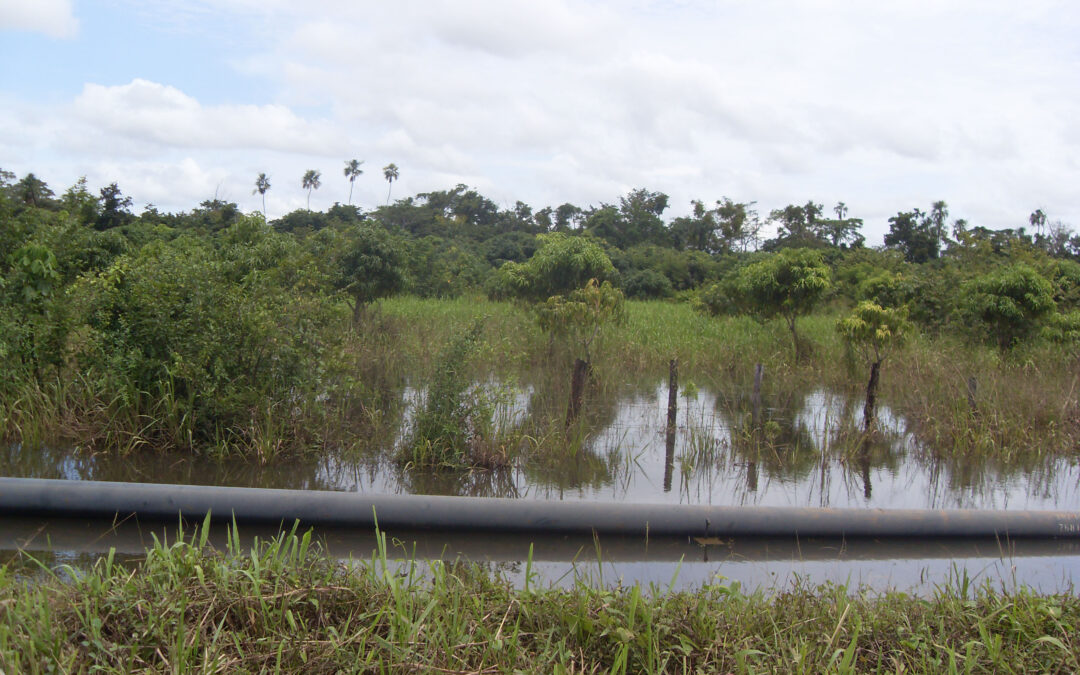
Mar 1, 2016 | Artículos, Noticias
En mayo de 2015, la empresa REPSA entregó un oficio en el Ministerio de Ambiente y Recursos Naturales donde acepta su responsabilidad por el desborde de sus lagunas de oxidación artificial que se derramaron sobre las aguas del río La Pasión el 28 de abril de 2015.
Sobre un segundo evento del 6 de junio de 2015 no hubo un reconocimiento de su responsabilidad.
El daño causado al Río la Pasión persiste al día de hoy y ha obligado a varias comunidades que allí habitan a buscar fuentes alternativas de sustento y trabajo.
El 10 de junio de 2015, vecinos del municipio de Sayaxché, en asamblea general integraron la Comisión por la Defensa de la Vida y la Naturaleza, para dar seguimiento por la vía legal a la contaminación del río.
El 11 de junio de 2015 presentaron una denuncia en el Ministerio Público con sede en el Municipio de San Benito, departamento de El Petén y demandaron a la empresa REPSA.
La Jueza Karla Hernández del Juzgado Pluripersonal de Primera Instancia Penal, Narcoactividad y Delitos contra el Ambiente resolvió investigar y suspender las operaciones de la empresa por un período de seis meses.
La decisión de la Jueza provocó diferentes acciones en su contra.
Entre las acciones más evidentes se cuentan: a) Antejuicio presentado en septiembre de 2016 por abogados vinculados a la empresa REPSA, el cual fue declarado sin lugar por la Corte Suprema de Justicia el 9 de diciembre de 2015; b) Demanda de juicio sumario civil para deducción de responsabilidades civiles por “extralimitación de sus facultades como juez B del Juzgado Pluripersonal de Primera Instancia Penal, Narcoactividad y Delitos contra el Ambiente del Municipio de San Benito, Departamento de El Petén, toda vez que ordenó una medida precautoria que no está contemplada en la ley”; esta denuncia fue aceptada para su trámite por la Sala Regional Mixta de la Corte de Apelaciones del Departamento de El Petén, Municipio de Poptún el 6 de octubre de 2015 y se encuentra en trámite.
Acerca de estas acciones, la CIJ considera:
- Según los Principios básicos de las Naciones Unidas relativos a la independencia de la judicatura no se efectuarán intromisiones indebidas o injustificadas en el proceso judicial, ni se someterán a revisión las decisiones judiciales de los tribunales, salvo la vía de la revisión judicial por medio de los recursos legales existentes;
- En el presente caso, la decisión de la jueza Hernández fue recurrida conforme los recursos propios del proceso penal (reposición y apelación); sin embargo, mediante otras acciones, se tomaron medidas en contra de la jueza Hernández y no contra la resolución emitida por ella, como debiera ser.
- Estas acciones atentan contra la independencia judicial, en tanto buscan evitar que la Jueza Hernández conozca el caso;
- La Jueza Hernández ha recibido amenazas sin que el Estado de Guatemala le brinde la protección debida;
Ramón Cadena, Director de la Comisión Internacional de Juristas para Centroamérica expresó: “Urgimos a las autoridades del Sistema de Justicia a tomar medidas adecuadas para evitar que las y los jueces independientes, resulten afectados por este tipo de acciones e intimidaciones.”









